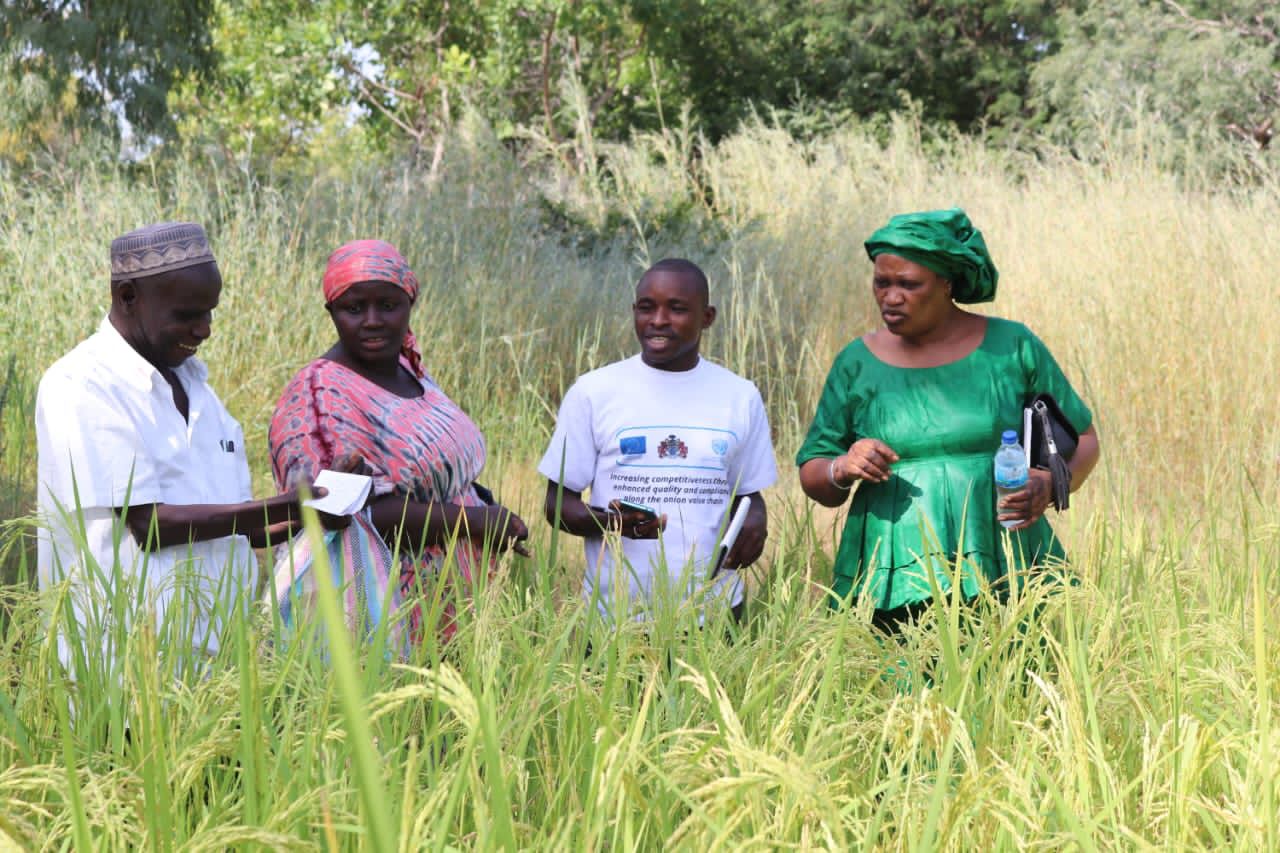By Kumba Leigh
The United Nations Industrial Development Organization (UNIDO), in the framework of the West Africa Competitiveness Program – The Gambia (WACOMP-GM), successfully concluded a 7-day training course in phytosanitary inspection and certification at Soma, Lower River Region (LRR). The training mainly targeted the staff of the National Plant Protection Organization (NPPO) of The Gambia.
The Plant Protection Services (PPS) forms part of UNIDO WACOM-GM’s continued strive to strengthen the technical capacity of the Ministry of Agriculture in pursuance of its objective of increasing The Gambia’s competitiveness through enhanced quality, and compliance along the onion value chain.
Mr. Saikou Suwareh Jabai, the National Communications and Visibility Expert for UNIDO said the UNIDO WACOMP-GM project has conducted several trainings for the staff of the Agriculture Extension Services as part of their efforts to strengthen the technical capacities of the Ministry of Agriculture and related services in the implementation of food quality and safety standards.
He added that the project has also provided the PPS with field testing equipment and kits for monitoring contaminants such as heavy metals, aflatoxins, and possible adulteration of certain food products.
Mr. Jabai said the cordial partnership and support which PSS has been benefiting is expected to boost their institutional competence and consequently enhance the quality of their services.
He noted that phytosanitary inspection and certification activities contribute to the protection of agricultural resources of the Gambia as well as facilitate the country’s participation in international trade in plants and plant products.
The Regional Agriculture Director for Lower River Region, Mr. Momodou Lamin Darboe, said to minimize the risk of introduction and spread of harmful pests in the country, plants, and certain plant products are subject to phytosanitary control.
“For the Plant Protection Services (PPS) to effectively execute this crucial mandate, there is a need to develop the institution’s capacity and provide them with relevant equipment,” he said.
He stated that key among the government’s aspirations in agriculture is to attain nutritional food security and this, he said cannot be achieved without a competent phytosanitary staff which makes the training very timely and significant.
Speaking on behalf of the participants, Dr. Ismaila Mbenga, commended UNIDO WACOMP-GM and EU for the initiative. He said the training allowed them to effectively learn through both the theory and practical sessions in the field. He expressed optimism that the lessons learned will be shared with their colleagues and utilized to meet the project’s expectations.







